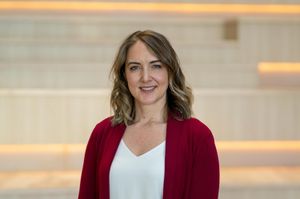Eleven years ago I walked into my first Co-Active Coaching course. All set for the weekend of learning, and armed with my new Co-Active Coaching book, notebook and pen, and ready to take on the world.
I was managing a busy restaurant, with a team of 150, and I loved helping employees address challenges around school, their new career paths, and coaching on the performance issues that surfaced. That was, at least what I thought was coaching, soon finding out just how wrong that assumption was.
Sparing all the uncomfortable details, I struggled through that first course. What I thought to be coaching for all those years - engaging in difficult conversations, understanding the intent behind strange behaviour, giving feedback and asking leading questions so people came to their “own” conclusions (the ones I wanted them to) - was not in fact coaching, but a combination of mentoring, advising and managing.
Professional coaching (there’s a difference)
My experience above is common among leaders. Without having experienced Professional Coaching, we come to the table assuming we know what coaching is, only to learn it’s something much different.
Here is how the ICF (International Coaching Federation – the governing body for Professional Coaching) defines Coaching:
"Partnering with a client in a thought provoking creative process that inspires them to maximize their personal and professional potential. The process of coaching often unlocks previously untapped sources of imagination, productivity and leadership."
What makes coaching so hard
The challenge? We love being experts and giving advice. We've solved the problem on our own in the past and are jumping out of our skin to share what we learned, to help the person sitting across from us to learn the same. Doing so often takes us out of the coaching realm and into straight up advice-giving.
The problem? They are not us. They are unique individuals that don't need to be fixed and come with their own remarkable capacity for creative solutions, ideas, and ways of being that are beyond what we could know.
Two differing characteristics of coaching
Two characteristics that distinguish coaching from consulting or mentorship are:
- The source of expertise
- Who “owns” the agenda
In a Professional Coaching relationship, the coachee (the one receving the coaching) is both the source of expertise and the agenda owner. In fact, the coach is utterly unattached to the outcome; they simply hold the agenda the coachee has defined for themselves.
In a Mentorship or Consulting relationship, the mentor or consultant are the source of expertise. Depending on the situation, they may, or may not be the agenda owner (for more information on how these modalities differ, take a peek at our Modalities Framework.)
In our fast paced culture, we look to experts and for answers outside of ourselves to "fix" our problems. My experience over the last decade as a coach, is that sometimes, the best answers and solutions are inside of ourselves. However, the muscle for doing so is drastically undeveloped. We are trained to ask, research, and poll others in what is best for us.
Anyone else see the irony here?!
The four (4) cornerstones of Co-Active Coaching
So how do we partner with someone in a Coaching relationship that ‘inspires them to maximize their personal and professional potential’?
What I learned all those years ago is that there are Four Cornerstones to Co-Active Coaching that provide the foundation, and lay the groundwork for any successful coaching relationship:
-
People are naturally creative, resourceful, and whole
This takes the perspective that people are not broken and do not need to be fixed. We as individuals have an innate capacity to develop, grow, make our own discoveries, and recover and learn from our mistakes and failures. The world is filled with people who are aching to be championed, held and seen as naturally creative, resourceful and whole.
-
Focus on the whole person In coaching we include all aspects of an individual's humanity: heart, mind, body and spirit. Sometimes these aspects are aligned, often they are not. We also split ourselves based on the roles we have. For example, one person may be all of the following: manager, parent, business partner, artist and provider. People are longing for wholeness and full expression of themselves in every facet of who they are, what they are about, and all they do.
-
Dance in 'this Moment' When we allow ourselves to step into ‘this moment’, relationships expand and blossom. We engage one another with deep curiosity, awareness, and presence, letting go of limited stories, strategies, attachments and assumptions about the past and/or the future. We dance in this moment as coach and coachee – or as partners in any conscious relationship.
-
Evoke transformation Our definition of transformation is a deep, elemental shift in essence on the path of evolution. People are yearning to grow and develop into the greatest possible expression of themselves. In a Co-Active relationship, sustainable transformation is evoked through awareness, discovery, learning, and growth.
I revisit the cornerstones above often, and always receive new insight. Even as Professional Coaches, it's easy to get caught in trying to push our own agenda, and what we want for the individual/client vs what they want for themselves.
Being unattached is no easy feat, and counter intuitive. Yes, it is exactly what is needed in our world. Helping others become more of who they are, rather than who we are, or who the world wants them to be.
